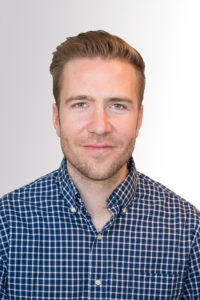- Toolkits
- Are You Ready to Talk?
- Beyond the Line
- Blocking Gender Bias
- Edgy Veggies
- First-Gen Ascend
- Fishbowl Discussions
- Measuring Mobility
- Peaceful Politics
- Plot the Me You Want to Be
- RaceWorks
- Rethinking Stress
- Space Reface
- Team Up Against Prejudice
- United States of Immigrants
- Kit Companion: Map Your Identities
- Kit Companion: LARA
- Collections
- Action Areas
- About

We the Immigrants: Q&A With Jonas Kunst, Ph.D.
Stories From the Field
We the Immigrants: Q&A With Jonas Kunst, Ph.D.

Dr. Kunst, a postdoctoral fellow at the Yale University Intergroup Relations Lab, led the research featured in this toolkit.
SPARQ: What inspired your interest in prejudice against foreigners?
Kunst: My family immigrated when I was a child, and many of my friends had immigration backgrounds when I grew up. Because I belong to a relatively invisible minority group, I did not experience much xenophobia myself. But I did witness my Muslim friends becoming increasingly targeted after 9/11. I think this made me aware, early on, of the challenges and obstacles minority members face, and sparked my interest in finding ways to improve their situation and intergroup living in general.
SPARQ: How would you like to see your research used?
Kunst: I think that NGOs trying to recruit volunteers and donors could profit from this research. Moreover, policymakers could use it to realize the potential of integration efforts carried out by majority-group members.
SPARQ: How do you see the application of your research differing across cultures?
Kunst: Most of our studies were conducted in the U.S., and so it remains to be tested whether our effects can be replicated with other populations. One could imagine that effects would interact with ideologies that differ across societies. For instance, while we found effects in the U.S., a classic settlers’ society, we might not expect the same effect in a country such as Germany, where citizenship historically has been contingent on belonging to the native German group. Group boundaries between immigrants and natives in Germany are less permeable.
SPARQ: How do you think social science can affect the world today, and what prevents it from having this impact?
Kunst: I think policymakers often pay too little attention to research when making their decisions. Moreover, some tend to use research only as long as it is aligned with their own political motivations. I think it would be good for researchers to be more actively involved in policy decisions. This is already done to some extent, but could still be increased.
Image via the University of Oslo


